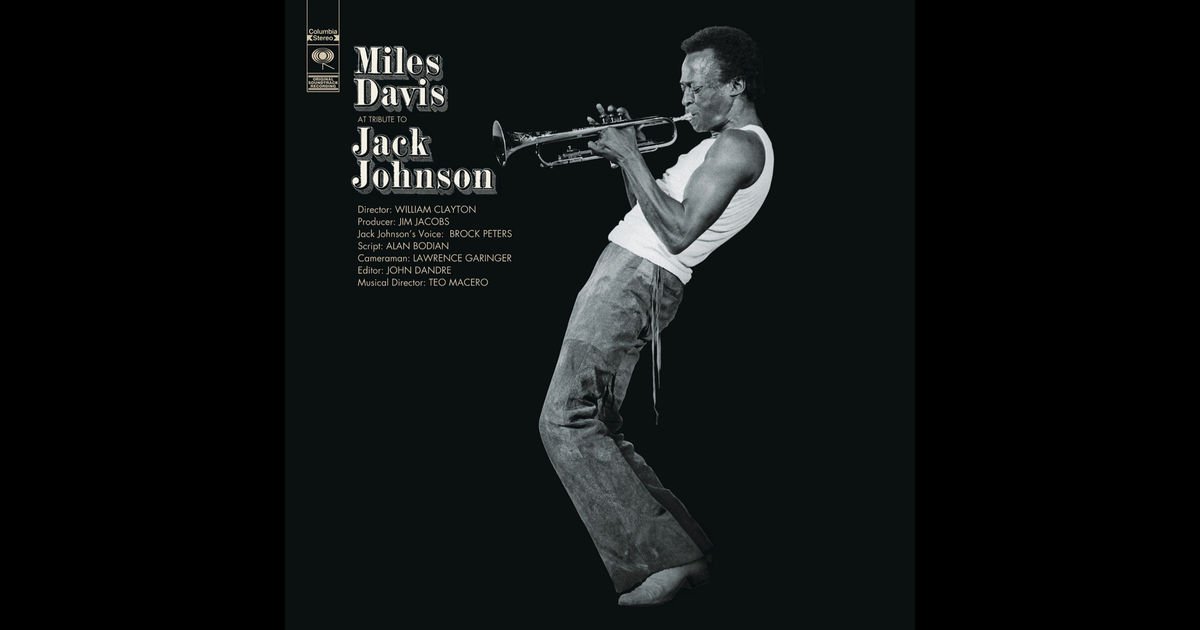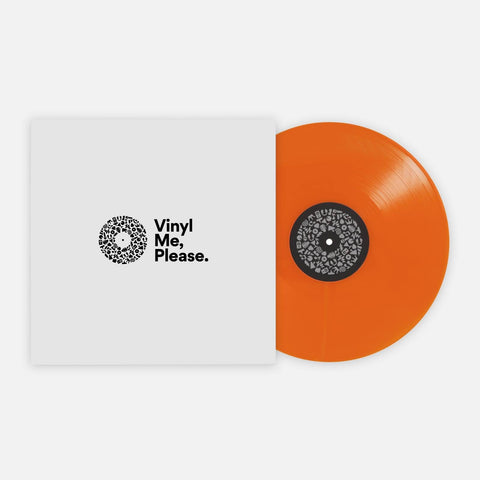Everything You Need To Know About Our Sorcerer Reissue
Our Record of the month this month is Miles Davis’ Sorcerer. Here, you can learn everything about our package that makes it special.
Why We Picked Sorcerer:
AW: I wanted to start by asking you why we picked this album, but then I realized that it was basically me saying back in like June or July, “Hey Cam, we should do this as a Record of the Month.”
Cameron Schaefer, Vinyl Me, Please Head of Music: Yeah, basically I trusted you on this one. You said we should do it, and I listened to it and thought, “This would be an interesting pick.” It’s cool because it’s Miles Davis, this big artist, but it’s also an album that’s kind of forgotten, and one you never see really. Then I reached out to Sony and said we wanted to do it as Record of the Month, and they said yes. That’s basically it.
AW: I wanted us to do this for a bunch of reasons. I realized it was the one Miles Davis album I had never ever seen in a store, and thought if I haven’t seen it, most other people haven’t either. It might be one of the least reissued of Miles’ ‘60s LPs. It's also a real left-field record; he doesn't have writing credits on the songs, and it has that weird song at the end. It's a transitional deepcut album for an artist that everyone thinks they know front to back. After I did some research, I realized it was this really interesting record that kind of helps tell where Miles was at this point in his career, and where he'd go eventually. He had already blown up jazz and made like the defining albums of jazz in a lot of ways, and then he didn't know what else to do for a bit in there. Then he made all those jazz rock albums and had his second great period. Instead of doing what everyone thought he should do, he did this record where he's sort of just a band member, and let's his second quintet decide the music, in some ways.
This is also the least likely Miles album you'd ever expect a record club like us to reissue, and that was super appealing for us too, I think. And then you made it happen.
Mastering Details
AW: I understand you guys have been working for a while on digitizing the Miles Davis catalog from master tapes. What has that process looked like?
Mark Wilder, Battery Studios, who worked on our Sorcerer remaster: There’s been an arc in the process of mastering the music of Miles Davis. If you look back 20 plus years, you see the start of the box set series. The philosophy was different than it is now. We did a lot of remixing so that the unreleased music dovetailed well with the released music in the box sets. Now that we’re dealing with the individual albums, we want awaken that feeling the die-hard fans had when they first heard this music. We’re going back to the original mixes as much as possible and comparing to early, original pressings to ensure we’re meeting the intention of Miles, Teo and everyone else who was involved with these issues. When we mix again, we do extensive comparisons to ensure we’re on the mark.
AW: How long did the remaster process go for Sorcerer in specific, and the catalog in general?
MW: Remastering the Sorcerer LP took a little more than a day. First, we did hi-res (24/192) flat transfers (direct from the tape) of the best available masters. These tapes have seen a few plays over the years and they are not as fresh as they have been in the past. Over the years, we have made copies for our worldwide affiliates. In the case of Sorcerer, the best tapes were copies made for the UK in 1967. They did not have as much wear as the US, original masters, so we used these. I then put on headphones and QC’d the transfers; fixing technical glitches. For this album, besides technical ticks and slight tape deterioration, I removed quite a bit of hum. This really opened the door for more clarity in the low frequency. Once I have the prepped files edited and in place in the computer, the comparative listening starts. Both Steve Berkowitz and I listen to the original pressing side-by-side with the prepped files and make decisions to match the sound. It’s all analog processing, and mostly these changes are to match the differences in the audio chains from 50 years ago and any processing that was done in mastering at the time. Once we have a sound, we print that tune and move to the next.
As far as the catalog, it’s ongoing. But every time we take on the next one, the process is the same. Best tape source, best LP pressing, QC, match and go.
AW: What are some of the challenges of the remastering Miles' music?
MW: For me, it’s knowing that the Miles fans are so dialed into the sound of his records. If they’re slightly off, I hear about it; so, it’s my job to make sure my work doesn’t interfere with their enjoyment of the music.
AW: Can you explain direct-to-metal mastering for our readers? That process was used with the files here.
MW: Direct-to-metal mastering (DMM) skips steps in the manufacturing, ensuring a more quiet and accurate pressing compared to the source. Each step in the manufacturing process opens the door for more noise and more technical issues, DMM minimizes this. DMM is the pinnacle of disc mastering, sadly it came along at the advent of the CD. I’m sure the CD would have still come to pass, but who knows what would have happened to the LP if DMM had a stronger foothold in the process before the start of the CD era.
Package Details
AW: A lot went into the mastering and remastering of this, but a lot went into the coloring on this too, right?
CS: Yeah. We actually invented a new color for the PVC that goes into making the record for this; we color matched it to the purple on the cover, and they made this new color for our pressing. It has a tip-on style jacket, and it’s got that old school high gloss finish to it. We really wanted to try to match the cover to what it would have been like if you bought this in 1967.
And there’s a new booklet that’s exclusive to our edition with photos from Miles from the era, and Liner Notes by Ben Ratliff.
AW: It really exceeds the expectations I had when I asked you this summer. I also literally just realized that because we’re doing this as the Record of the Month in December, it will ship in its 50th anniversary month. I backed us into a 50th anniversary pressing on accident. Couldn’t have planned it better if we tried.
Andrew Winistorfer is Senior Director of Music and Editorial at Vinyl Me, Please, and a writer and editor of their books, 100 Albums You Need in Your Collection and The Best Record Stores in the United States. He’s written Listening Notes for more than 30 VMP releases, co-produced multiple VMP Anthologies, and executive produced the VMP Anthologies The Story of Vanguard, The Story of Willie Nelson, Miles Davis: The Electric Years and The Story of Waylon Jennings. He lives in Saint Paul, Minnesota.
Related Articles
Join the Club!
Join Now, Starting at $36Pages








